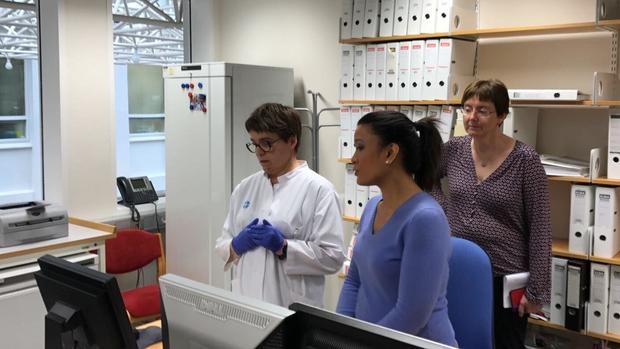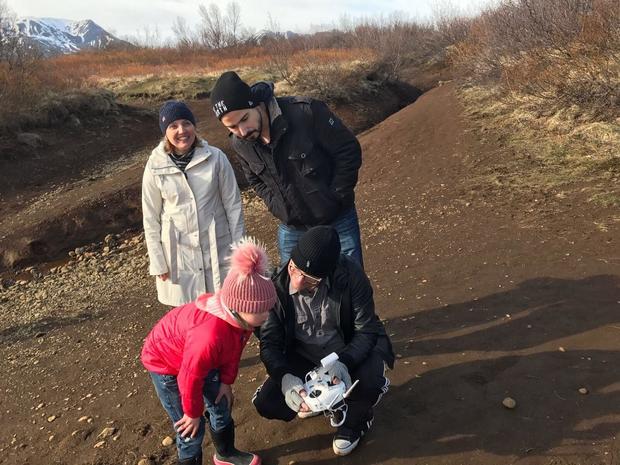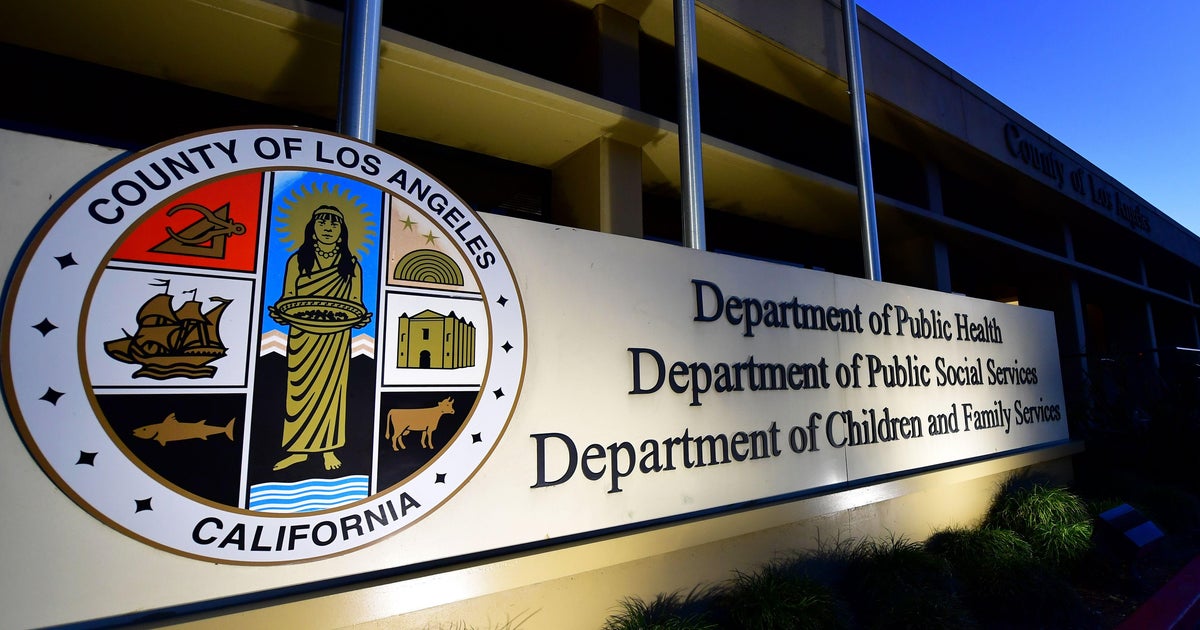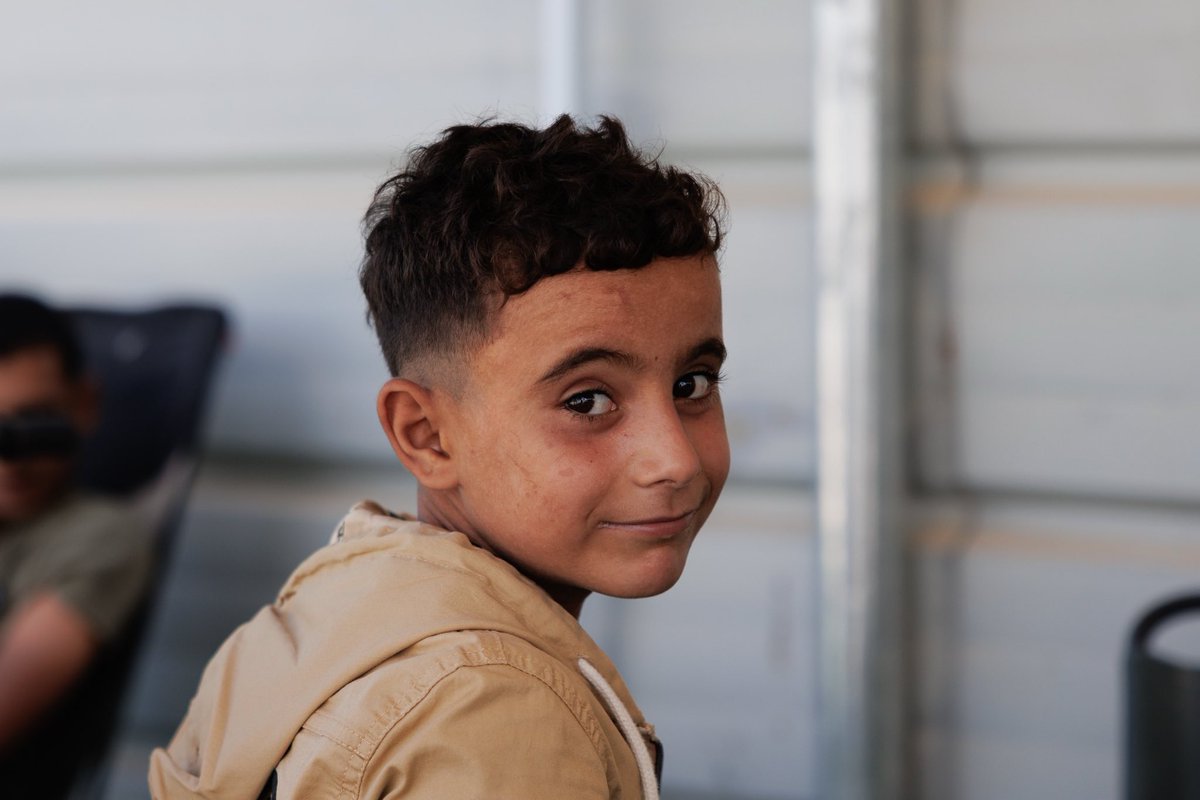Behind the Lens: Iceland's Down syndrome dilemma
Watch "CBSN: On Assignment" on Mondays at 10 p.m. ET/PT on CBS and on our streaming network CBSN. Explore more on this topic by clicking here.
It's 10:00 p.m. in downtown Reykjavik, and the sun is just starting to set. The light grey hue that has stamped the sky all day now has soft streaks of orange. The summer solstice in Iceland is in full swing. An 18-hour day recedes, and in less than 6 hours the sun will begin to rise again. I am walking back to my hotel. I zip my fleece, stuff my hands into my pockets and my chin into my chest. I guess one would expect a country named Iceland to still be chilly in May. I step out of the street as a rare car crawls past. The sidewalk, like the street, is pristine. Clean, well-paved. It mirrors some of the best attributes of the country: orderly, efficient and equal.
This landmass, straddling the continental plates of both Europe and North America, is interesting. Only slightly larger than the state of Maine, it has a largely homogenous population. Just 6 percent of Icelanders are foreign-born and it's reported that more than 90 percent can trace their ancestors back to the original Viking settlers. More than half of of the country's population lives in the capital, Reykjavik. Our interviewees laugh at the everybody-knows-everybody experience that my crew and I encounter regularly. And it feels true: Reykjavik, the capital city equivalent to a small town. It makes me wonder if these minor, societal anecdotes somehow contribute to the purpose of our journey: understanding why nearly all pregnant women in Iceland whose fetuses have been diagnosed with Down syndrome are ending their pregnancies.
It is a loaded query, similar to the question of why any person embarks on the decision to end a pregnancy, varied and discrepant for each individual woman and man, regardless of nationality. However, Iceland does stand apart. In Denmark, termination rates for fetuses with Down syndrome stand at 98 percent; the figure in France is 77 percent; and in the U.S., studies suggest about 67 percent. Iceland is the only country to have reached a consensus: from 2007 to 2015 every single pregnant woman in Iceland terminated a fetus with Down syndrome following a positive diagnosis. That number could be skewed by its small population -- the entire country is home to fewer residents than midtown Manhattan. Even so, while local citizens know the statistic, they find it relatively shocking. Should that come as a surprise? Prenatal screenings can now more easily and accurately test the risk of having a child with Down syndrome. Additionally, the government of Iceland mandates that every expectant mother here be informed about the option of getting a screening test. It goes like this: a midwife asks a pregnant Icelander at the country's main hospital, Landspitali, "Would you like to have information on screening for Down syndrome?" The majority -- a whopping 90 percent -- will answer "Yes."
Therein lies the slippery slope, according to Thordis Ingadottir, the mother of a 7-year-old girl with Down syndrome and the president of the Icelandic Downs Association. That question alone, according to Ingadottir, pushes women to view Down syndrome negatively, as something to be screened out. She says it influences a woman who previously might not have been considering Down syndrome as a possibility for their unborn child and creates a crossroads. Has the woman in question considered what she would do if she tests 'high risk'? What type of mental strain does this inflict?
However, is the alternative not to know?
This is a new dilemma in modern society, one that women and their partners in the past never faced, because the technology simply did not exist. Now, in Iceland's socialized health care system, it is information that must be presented. When we speak to staff members at Landspitali Hospital who perform the prenatal screenings and provide counseling for women if the results indicate Down syndrome in the fetus, their objective seems unified: to educate, share information and offer the woman the choice, without bias.
It is a complex discussion, one that stretches beyond the pro-choice and pro-life debates in Washington. In Iceland, there is no comparable abortion debate. It is legal, set to stay and widely accepted. Icelanders are genuinely accepting of advancing technology, receive substantial health care support and largely embrace women's rights. Yet, the termination of a Down syndrome fetus provokes an intricate ethical, scientific and societal web of issues -- even more, the age-old clash of nature versus science. Is more knowledge more power? And if so, is that a good thing? Down syndrome is not the only disorder that can be screened for, it is just the primary one being done right now. What will be next? Where do we draw the line -- or do we? While Iceland is face to face with these dilemmas, the questions ripple across other developed nations as well.
As I near my hotel, I unravel my hands from my jacket pocket and untuck my chin from my chest. I grasp the crisp air in my palms and I look up. Night has finally arrived on this volcanic rock in the icy North Atlantic. All seems serene in this safe, quiet and isolated land. The future medical and ethical implications that lie ahead feel so human, in this ancient place filled with grandiose waterfalls and enormous glaciers. I open the door to my hotel and inhale a final scent of the moonlight. Wherever this debate leads us, it is ever more likely that we'll soon hold greater power over future generations of humanity, and the diseases and disorders they may -- or may not -- face.







